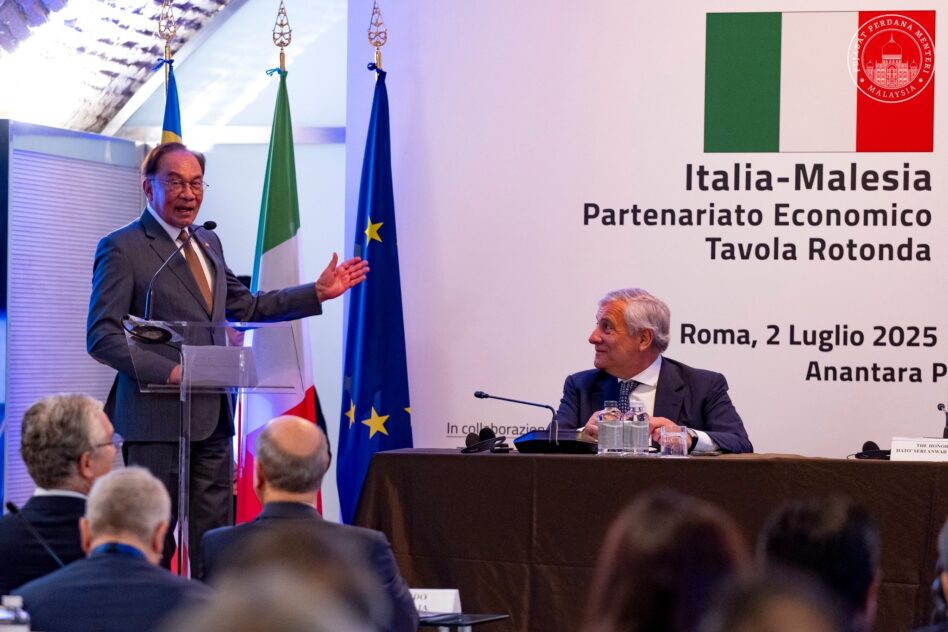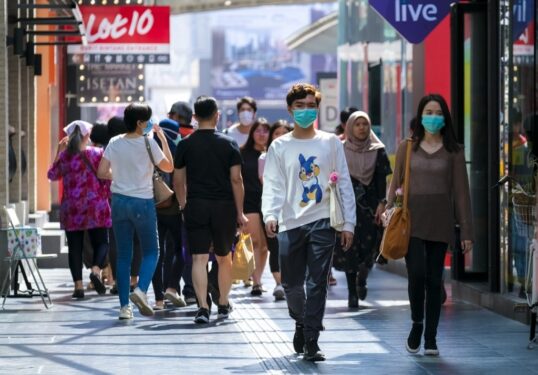By Alex Iskandar Liew
HAVING gone under a tremendous level of political, social and economic strain lately, Malaysia and its new government will need to robustly review the national agenda set after GE14, the policies that were implemented, programmes that were previously scrapped and measures that had been put in place since the transition of power – two times over. In fact, as we speak, Malaysia has a fully functional civil service helmed by a new prime minister albeit without a Cabinet (as of the time of writing).
We may not have a Cabinet of ministers, but the work can and must go on. The task of governing and implementing the right public policies, while not an easy task, to begin with, is doable. What Prime Minister Tan Sri Muhyiddin Yassin requires is an astute list of prioritised initiatives that can be implemented by our able civil service to steer our socio-economic landscape towards the right horizon. Having stepped up to the mantle, he now needs to regain the trust and belief of Malaysians that he, as Malaysia’s eighth prime minister, can deliver.
As he told NST: “I urge you to support me to undertake this huge responsibility entrusted on me. Give me a chance to utilise my 40 years of experience in politics and government. I give you my heart and soul.
“Give me some time to outline a path under this new administration which I will explain to the people as soon as possible.”
Unfortunately, time is a premium rarely accorded to politicians. Here are the top five possible initiatives vis-a-vis his pledges that he should immediately focus on, in no particular order.
Your to-do list, Mr Prime Minister
#1 – “The priority is to increase administrative integrity and management. Fight corruption and abuse of power.”
It is unfortunate that the first week of Muhyiddin’s administration has been fraught with two back-to-back resignations. One from the attorney-general and the other from the MACC chief commissioner. Both posts are integral to instilling administrative integrity, fighting corruption and abuse of power. The rakyat will be clamouring for the PM to fill these posts swiftly. To that end, consider hiring uncompromising and tireless individuals with a record of advocating against corrupt practices, irrespective of the position or political allegiance of the perpetrators.
#2 – “I also know what people want is a government that is sensitive and efficient in solving the people’s problems and have the means to meet their daily needs.”
The prime minister must be bold enough to build a Cabinet of capable ministers that will put the rakyat’s interests first. Take lessons learnt from the previous administration. Shortlist capable and hardworking MPs who have delivered in the past regardless of party affiliation. Resist those who seek power for the sake of power. Because the prime minister will need such individuals to help him combat the trust deficit that existed prior to GE14.
#3 – “I also know the need for quality healthcare services at affordable cost.”
This noble pledge is far more complex than it seems. With the Covid-19 outbreak, the prime minister has his work cut out for him. There is an immediate need to stabilise and protect the health of the rakyat before Covid-19 becomes a pandemic.
The Health Ministry has the second-highest number of civil servants with the second-highest budget allocation in Budget 2020. This was to ensure that Malaysia’s public healthcare industry could keep up with new advances in technology, facilities and outbreaks of undesired viruses.
In a recent article, Dr Khor Swee Kheng offered useful and valid suggestions to the new prime minister that the time may well have come for him to consider appointing specialised technocrats who are results-driven, non-partisan and non-ideological to the Health Ministry.
#4 – “With my six-year experience as education minister, I promise to strengthen the country’s quality of education. I will ensure our children will receive an education which standards are on par with developed nations.”
During his term as education minister, Muhyiddin had stepped up, defied critics and went against the grain to implement the dual language programme (DLP). While the use of English in Malaysian schools has always been a subject of debate, the DLP was implemented to preserve the use of Bahasa Malaysia while ensuring that the population’s grasp of the English language continues to improve.
English by far is still the language of commerce and communication around the world. While there is continued pushback from certain quarters, their criticisms shouldn’t be allowed to jeopardise the aspirations of parents who wish to have their children be proficient in English but may not have the resources to send their children to private or international schools.
Studies have shown that 15% of rural students exposed to DLP (compared to 2% without DLP) reached intermediate English proficiency, and on the other end of the spectrum, only 4% of DLP students (compared to 25% without DLP) fell below the basic proficiency target at the end of preschool, according to The Malaysian Insight. Many teachers have noted that the DLP was able to capture students’ interests in STEM (science, technology, engineering and mathematics) subjects and prepare them for future careers in those fields.
#5 – “I am a brother to the Malays, the Chinese, the Indians, the Sikhs, the Ibans, the Kadazans, the Dusun, the Murut and those of various ethnicities. I am your prime minister. Even if you are a farmer, a fisherman, a trader, a civil servant or a private sector employer, I am your prime minister.”
For too long, populist statements of such nature have become standard inclusions into a politician’s manifesto without bearing the conviction and necessary will to come down hard on those who readily play the racial card and assume bigotry. Too often we promote the ideals for Malaysians to be seen as one. Too often we speak of embracing our diversity. Too often we claim that this diversity makes us collectively great and that we will become a society that will prosper and progress together.
But it is glaringly obvious that some have not received the memo. If we indeed aspire for a better Malaysia for our children and our children’s children, then this new leadership needs to start walking the talk.
Malaysians were promised a repeal of draconian acts or laws as part of Pakatan Harapan’s winning political manifesto. This has not quite happened. But why go so far as to enact a law and then find ways to repeal it, when Malaysia already has the well-established Rukun Negara developed and enshrined 50 years ago?
The Rukun Negara has two parts. The first, a pledge that reads:
“Whereby Our Country, Malaysia nurtures the ambitions of: achieving and fostering better unity amongst the society, preserving a democratic way of life, creating a just society where the prosperity of the country can be enjoyed together in a fair and equitable manner, ensuring a liberal approach towards the rich and varied cultural traditions, and building a progressive society that will make use of science and modern technology.” (Source: MyGovernment, 2016)
The second outlines the five principles – Belief in God; Loyalty to the King and Country; Upholding the Constitution; Rule of Law; and Good Behaviour and Morality.
Sadly, these values to teach, construct and mould a Malaysian society that is free from corruption, vengeance, envy and prejudice have been largely ignored and even forgotten by our leaders in recent times – if you can even call over three decades recent.
Perhaps now is the time for our new prime minister and modern-day government to return to these principles and construct a manifesto or policy of delivery that does not consist of race or religion-based voter appeal, and is more in line with what the average Malaysian politician wants. The question then becomes: Does the new prime minister desire to be an average politician or a transformational one? For the sake of a new Malaysia, I hope his answer is the latter, because then we can dream of a united Malaysia once again.
Tan Sri Muhyiddin Yassin, you have stood up before the rakyat. Asked all Malaysians to give you a chance and to join you in rebuilding our country and restore its glory. Our faith – and the future of our country – rests in your hands. We sincerely hope you will make the right decisions befitting that of the people’s prime minister. – March 9, 2020
Alex Iskandar Liew is a communications activist, who strongly believes that all public manifestos and government plans should be distilled into 3-feet programmes with clear outcomes, tasked to individuals who are driven and willing to be held accountable for their implementation and delivery









